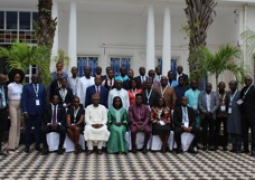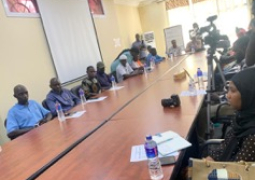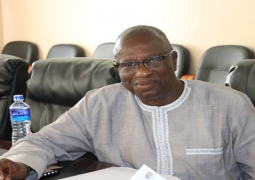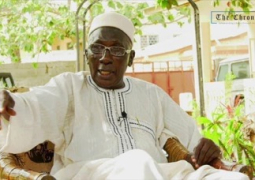These dissatisfactions were expressed in a statement addressed to the President Adama Barrow and signed by Gender Platform The Gambia, Pan African Female Youth Leaders The Gambia, The Girls’ Agenda, Think Young Women, Equals Now, Musso Podcast, She Awards Gambia, Women in Liberation and Leadership, Safe Hands for Girls, The Victim’s Podcast, Girls Talk Organisation, West African Network of Young Female Leaders (ROAJELF), Women and Children Aid The Gambia, Female Lawyers Association of The Gambia (FLAG), Gambian Deaf Women’s Society and Fantanka.
The statement reads: “On 9th April 2022, Gambians went to the polls to elect their representatives in the 6th parliament of The Gambia, as mandated by the Constitution. This election holds significant value as Gambians work to consolidate the gains from our new democratic dispensation, following the historic December 2016 presidential elections.”
“This year, a total of nineteen (19) women were nominated to contest in the parliamentary elections, out of which only three (3) were successful in their bids to be elected to represent their constituencies at the National Assembly.”
“Your Excellency, women represent 51% of the Gambian population, and having only 6% representation at the National Assembly will gravely affect women’s leadership and participation in decision-making and the ultimate development aspirations of The Gambia,” the statement added.
‘‘The results of the election do not align with the important calls for equitable representation in our decision-making spaces, but instead widen the gap for minority representation, especially in the National Assembly.”
The women groups also “recalled the recent efforts for affirmative action in this regard, through the introduction of the Constitution Amendment Bill.”
“This Bill sought to enlarge the composition of elected members of the National Assembly and institute fixed quotas for competent and qualified women and persons with disabilities, a necessary measure in the face of inequality and inequity in decision-making platforms in The Gambia.”
It further detailed that “last year, women-led Civil Society Organisations led advocacy meetings with political party leaders, including yourself, to enlist support for this Constitution Amendment Bill and avoid meeting the same fate as the Draft Constitution.”
‘‘Despite our vigorous campaigns and direct advocacy efforts, this Bill failed to proceed due to a lack of quorum in the National Assembly on the second reading.”
“The high hopes from minority groups in The Gambia were dashed, and the energy from the people whose rights would have been most protected by this Bill dwindled.”
‘‘It is without doubt that the successful promulgation of this Bill into law would have led to a different outcome for minority groups in the recently concluded parliamentary elections. We would have, indeed, seen more positive results as far as minority representation is concerned.”
They have also urged Barrow to include women in the five that he has been empowered by the constitution to nominate, but that dream was (nearly) shattered as the President’s 5 nominations only one female
They urged the President to remain true to his promises and commitment to the advancement of women, persons with disabilities and other minority groups in the country.
‘‘As the President for all Gambians, Your Excellency, we call on you to exercise your constitutional powers in the interest of the underrepresented and marginalised, as we all strive to build a Gambia where everyone is treated as equal to the other, with no discrimination.”





